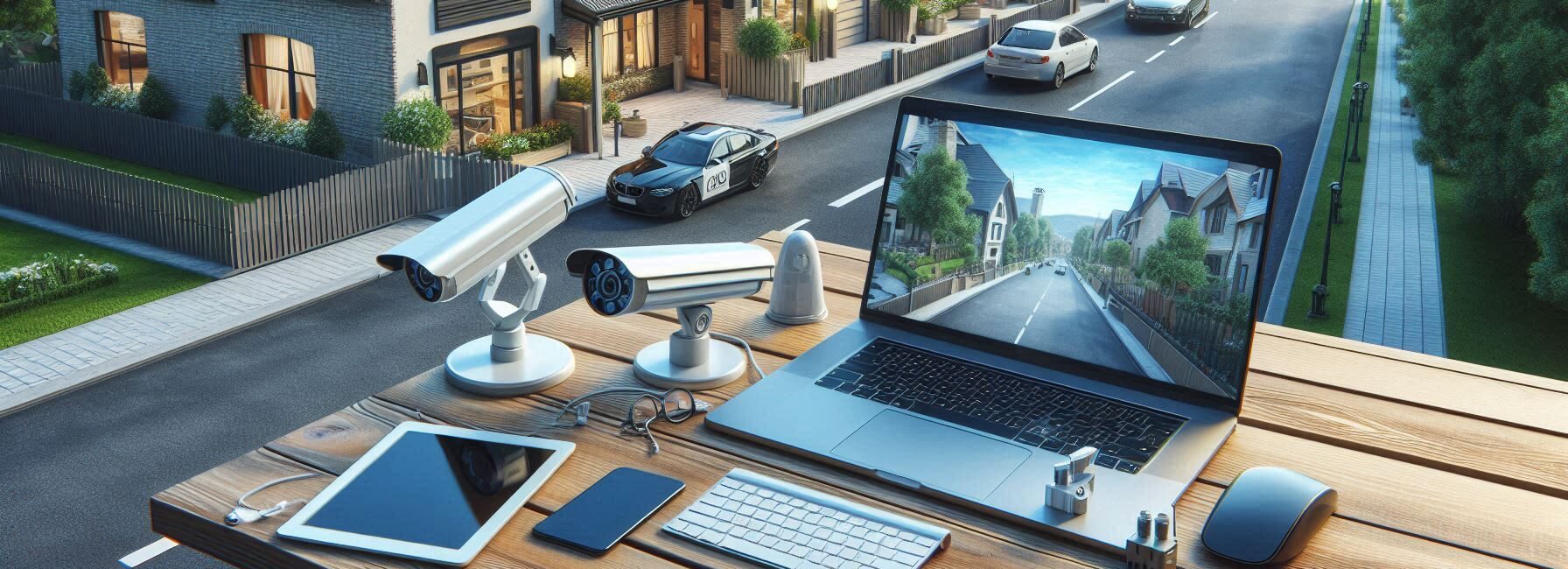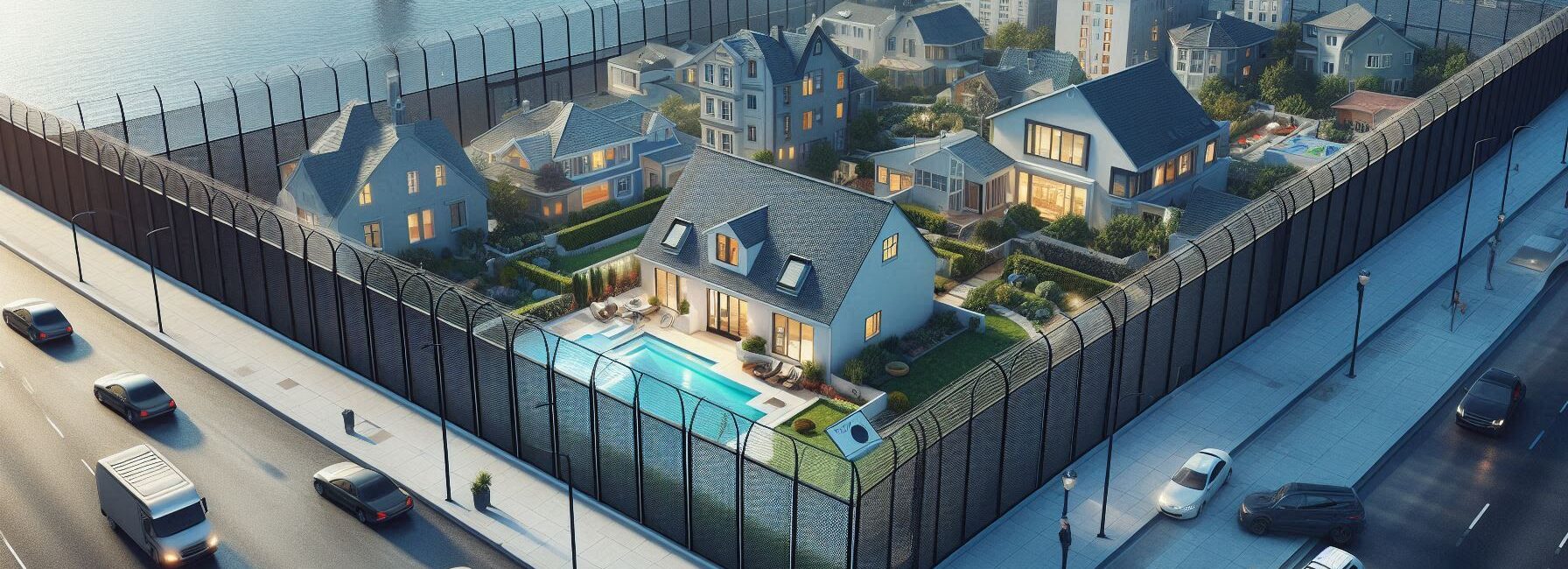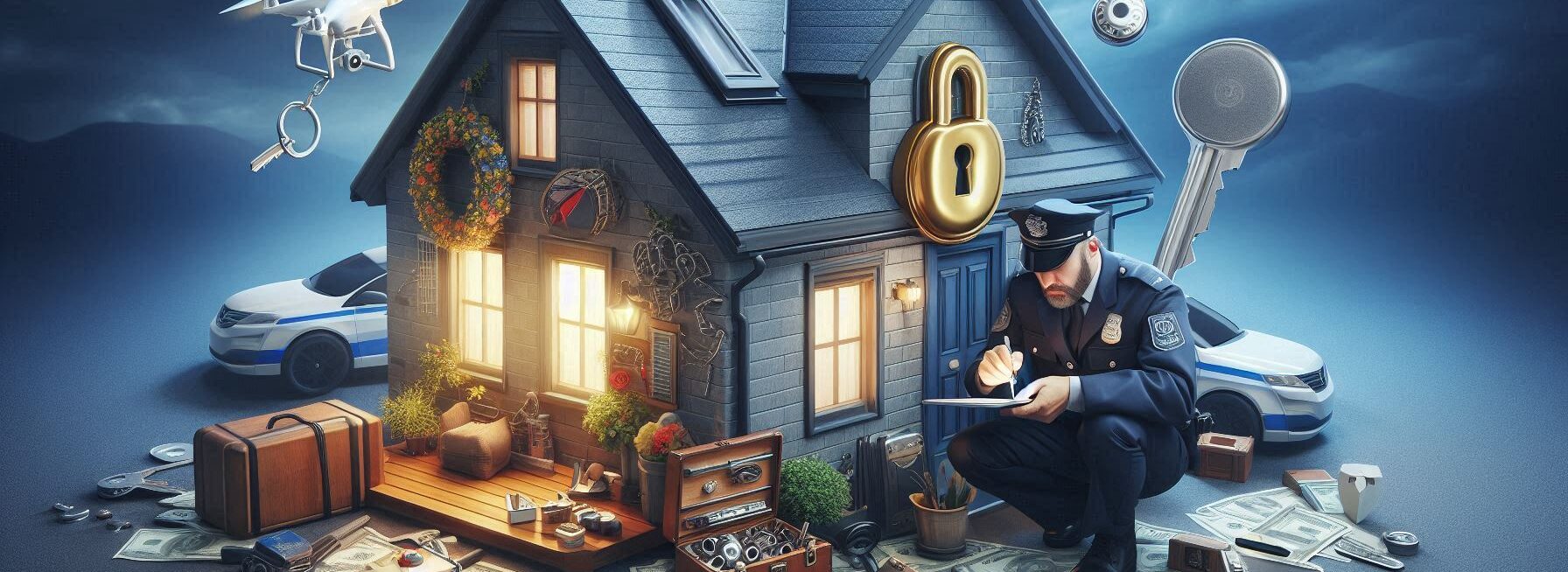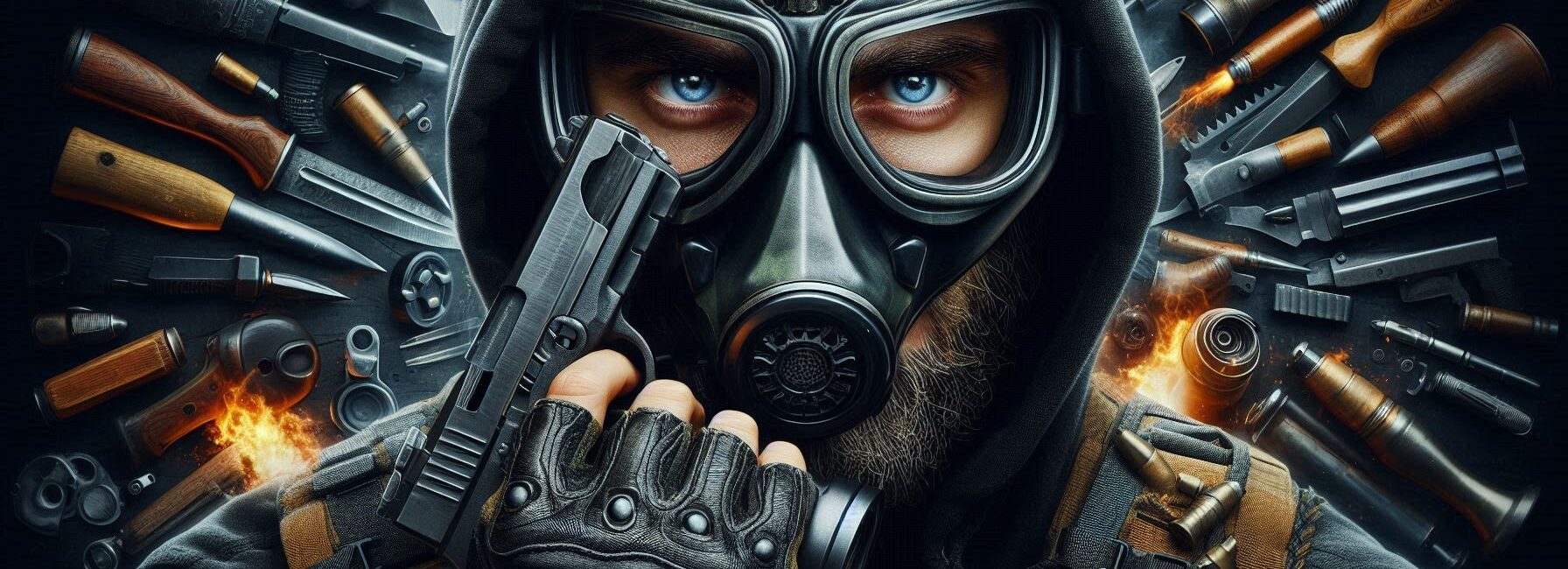Last Updated on November 2, 2025 by Kevin Collier
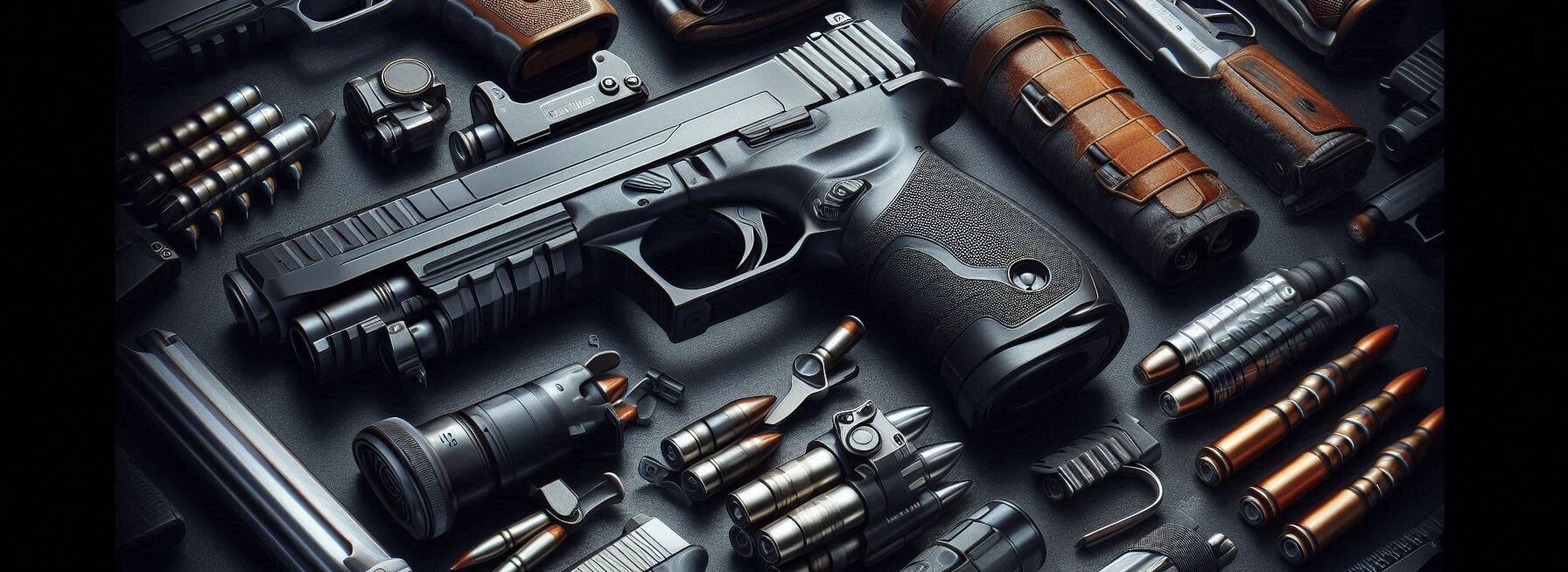
Top Takeaways and Key Concepts
– Assess your needs based on your experience level and protection goals.
– Research various firearms types, such as handguns, rifles, and shotguns, for suitability.
– Prioritize firearms that are reliable, easy to handle, and maintain.
– Consider comfort and fit; practice with your chosen firearm regularly.
– Always follow safety protocols and laws related to firearm ownership and use.
It's like picking a pet when you choose a gun for personal defense. You don't just pick up the cutest puppy at the shelter without considering. It's all about finding the ideal fit for you.
Please Note: This post may contain affiliate links. If you click one of them, we may receive a commission at no extra cost to you. As an Amazon Associate, I earn from qualifying purchases.
Think about what you really need for a minute. There is no one-size-fits-all answer, just like with dogs. Some people desire something compact and easy to carry, while others might need something heavier to keep their homes safe. Think about where you'll utilize it.
Do some research as well. You should learn about the many kinds of guns. People like handguns because they are tiny and easy to use. Shotguns are a good way to protect your home. Like diverse dog breeds, each one has its own feel.
It can be helpful to try them out at a shooting range. You want to feel how it feels in your hands, just as when you walk your dog. It's a good idea to practice until you feel at ease.
Just like teaching a puppy to sit, safety is very important. Always think about how to keep your gun safe. It's a good idea to have a lockable cabinet. You wouldn't leave your new dog alone with the snacks, would you?
We should not forget the law. It's really vital to know the rules where you live. Laws can change, just like your cat might decide to knock over a flower pot.
Get information, talk to friends, or take a class. You're making it easier for yourself to succeed. Choose wisely, and don't rush. It's like waiting for the proper kitten or puppy to come to you. In the end, it's all about feeling safe and at ease.
Contents of This Page
*** Shop for Survival Gear - Tools - Kits ***
Survival Gear - Bags and Backpacks - Knives - Boots/Footwear - Communication
Outdoor Cooking - Gloves - Hydration - Dry Boxes - Water Filtration Systems
Tents - Sleeping Bags - First Aid Kits - Multi-Tools - Flashlights - Fire Starters
Navigation - Survival Food - Night Vision - Headlamps - Stun Guns - Binoculars
Understanding Your Needs
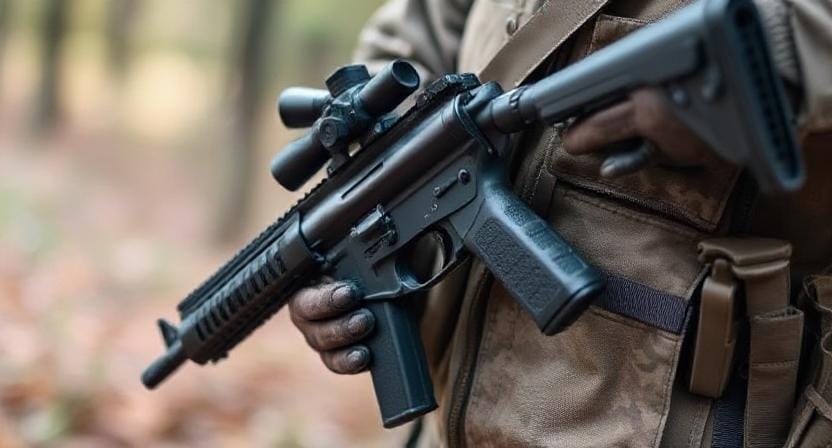
What do you need this gun for first? Are you going to use it to protect your home from invaders, or are you going to bring it with you when you hike in bear country? If you're getting ready for both situations, I suggest something that won't scare the bears away by accident, like an air trumpet instead.
When you think about what you need, think about where you'll be utilizing the gun the most. Many individuals choose shotguns or handguns for home defense because they work well and are easier to handle in confined places, such when you're attempting to get around your living room during a family gathering.
Think about how comfortable you'll be carrying it about when you go food shopping if you plan to do so.
But we shouldn't forget about training! It doesn't matter which gun you choose; you need to know how to use it well. It's like learning to ride a bike: if you don't practice a lot, you can fall flat on your face or worse!
Different Kinds Of Guns
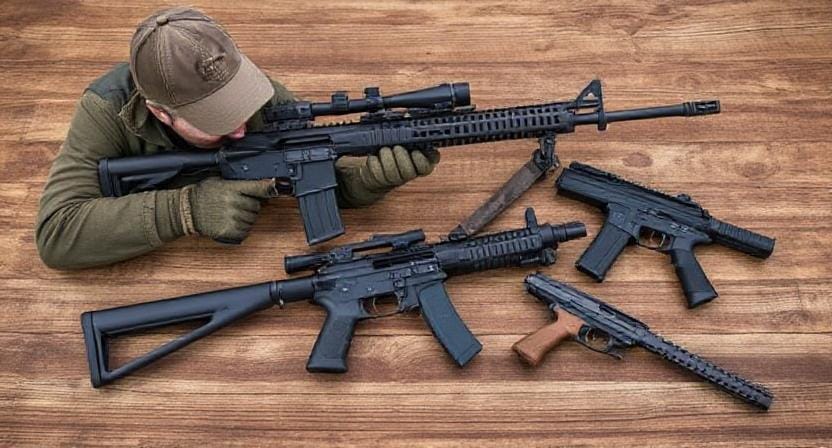
Now that we know what you need, let's speak about the different kinds of guns that are out there. This is where things can get out of hand faster than my dog when he sees a squirrel. Here are some frequent choices:
1. Handguns: These are popular for keeping yourself safe because they are small and easy to use. There are revolvers, which are like the guns in old cowboy movies, and semi-automatics, which are the cool kids on the block. Both have their good and bad points; it all comes down to whether you like style above simplicity or the other way around.
2. Shotguns: People often use them for home defense since they hit hard—literally! Shotguns come in several gauges, with the 12-gauge being the most prevalent. They work better than a notice that says “I'm busy” pinned to your door to keep unwelcome people away.
3. Rifles: In cities, rifles aren't as often employed for personal protection, but they are more accurate and have a longer range, which makes them better for rural areas or for dealing with bigger dangers (like raccoons who want to take over the world).
Also, be sure to try out different guns before you make a choice! Buying anything that seems heavier than my toddler after snack time is a sure sign that I made a wrong choice.
Fit and Comfort
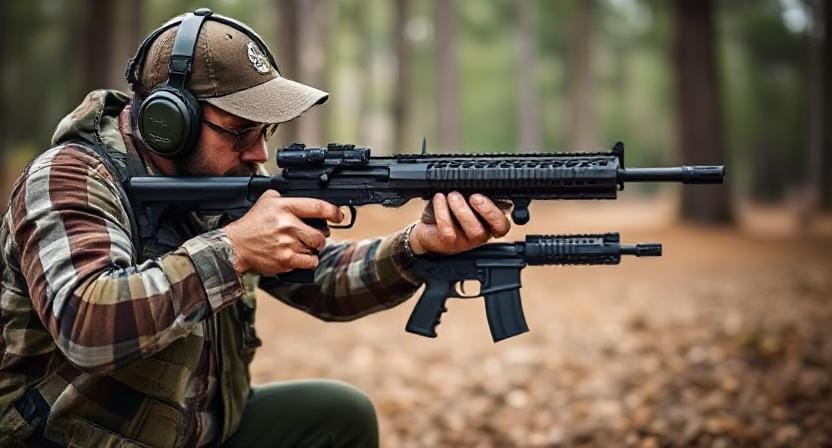
Comfort is important! You should feel like a gun is a part of you, not an unpleasant thing that sticks out of your side. When you try out weapons at a store or range, pay attention to how they feel in your hand and how easy it is to use the controls without feeling like you're doing brain surgery.
One day, I tried to handle a firearm that was so big I thought I needed two hands to lift it! If you're having trouble with your grip or weight right now, just think about how hard it would be to defend yourself when you're stressed. It may turn into a funny but deadly slapstick comedy act.
And speaking of fit, think about how easy it will be to carry every day if that's part of your strategy. There are a lot of holsters made just for comfort. Find one that goes well with your clothes unless you like to wear sweat stains!
Things to Think About When It Comes To Caliber
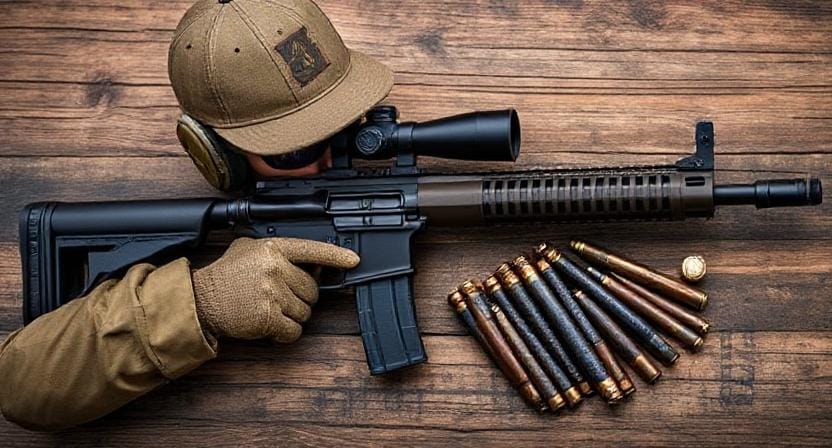
We now get to caliber, which is a fancy word that gun lovers use to signify “size matters.” Picking the appropriate caliber can have a big impact on how well you can handle recoil and how much stopping power you have (like deciding between small and large coffees at Starbucks).
Larger calibers may stop things better, but they also have more recoil. It's like a double-edged sword, as when I tried to fix things around the house myself and they went wrong!
If you're new to shooting or want to practice with a gun that has less recoil, it can be a good idea to start with lower calibers until you get more comfortable.
But as always, don't skip the research! There are many different types of ammunition that are better for self-defense than for leisure shooting, so do some research to find out which ones are best for you.
Things to Think About Legally
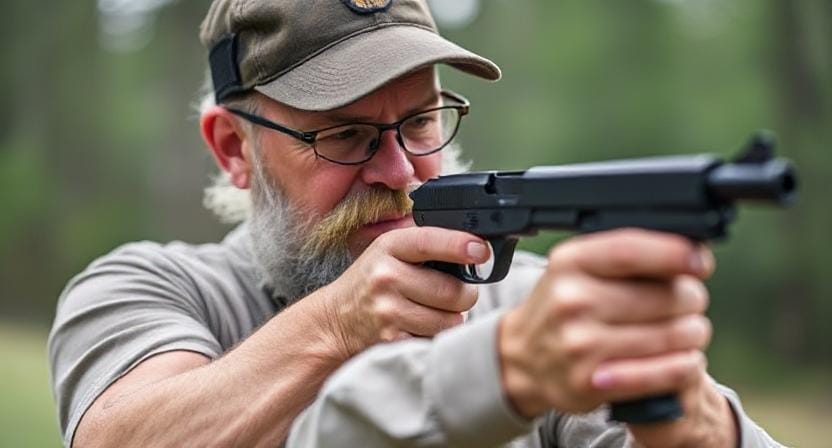
Finally, and this is very important, discover what the law says about owning guns in your area before you buy one! Laws about getting permits to buy guns and how to use them when you get them are very different from state to state.
You wouldn't want anything like “surprise!” times when police turn up out of the blue while you're practicing target shooting outside among neighbors who believed they were safe behind their garden walls!
So, make sure you read the rules in your area carefully. You'll be glad you did later when you don't have to deal with extra problems… or worse!
Conclusion: Making Your Choice
Okay, we're almost done now. The best gun for you is the one that works best for you. It's like choosing your favorite flavor of ice cream. Everyone has their own likes and dislikes!
Think about what feels good in your hands. The most important thing is comfort. You don't want to utilize something that seems heavy or cumbersome, especially when you need it the most. You couldn't run with a huge sundae in your hand, could you?
Also, knowledge is very vital. Learning about different types is quite helpful. It makes a great difference to know how they work and the laws that apply to them. You wouldn't go into a candy store without knowing what you want, would you?
Being aware of your surroundings is like being vigilant on a hike. You think about where you are, what's around you, and how you could feel in certain situations. The more you learn, the better off you'll be.
Training is an excellent approach to become used to things. It's all about getting better at what you do, whether it's in a class or at the range. It's just like learning to ride a bike!
It's like making sure your plants get enough water and sunlight to stay safe. You take care of them so they can grow big and robust. You want your choices to be the same.
Just remember those strange bean-hoarding preppers if you don't remember anything else from our talk today. They know how to stay safe. It's all about doing things to make your home safer. Changes, even modest ones, are important. Progress is progress! Every move you make matters. The most important thing is that you are setting yourself up for success.
Frequently Asked Questions
How do I determine what type of firearm I need?
Determine your needs by considering your environment, experience level, and whether you need a firearm for home defense, concealed carry, or outdoor protection.
Are handguns a good choice for personal protection?
Handguns are popular for self-defense because they are compact, easy to handle, and suitable for both home and concealed carry use.
When should someone consider a shotgun instead?
Shotguns are commonly chosen for home defense due to their stopping power and effectiveness in close-range situations.
Does firearm fit and comfort really matter?
Yes, fit and comfort matter because a firearm should feel natural in your hand to ensure better control, accuracy, and safe handling.
How important is choosing the right caliber?
Caliber affects recoil and performance, so selecting one that balances stopping power with what you can comfortably control is essential.
Do firearm laws vary by location?
Yes, firearm laws vary widely by jurisdiction, so it is crucial to learn and follow local regulations before purchasing or carrying a firearm.
Is firearm training necessary after purchase?
Regular practice and training are highly recommended to ensure proper handling, confidence, and safe operation of any firearm.
Suggested Resources:
Firearm Safety Basics
https://www.nraila.org/articles/20190815/firearm-safety-basics
Choosing Your First Handgun
https://www.thetruthaboutguns.com/choosing-your-first-handgun/
Understanding Gun Calibers
https://www.guns.com/news/2020/01/22/gun-caliber-guide

Kevin Collier is a seasoned survivalist and expert in prepping and homesteading, contributing to WiseSurvive.com. With a deep-rooted passion for self-sufficiency and outdoor survival skills, Kevin shares practical advice, strategies, and resources to help individuals prepare for any challenge. His informative articles cover a range of topics, from essential survival techniques to sustainable living practices, empowering readers to thrive in any situation. Whether you're a novice or a seasoned prepper, Kevin's insights will inspire you to take charge of your readiness and build resilience for the future.

